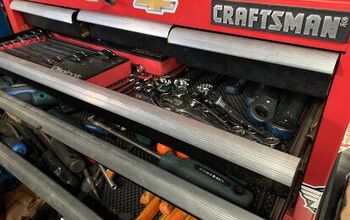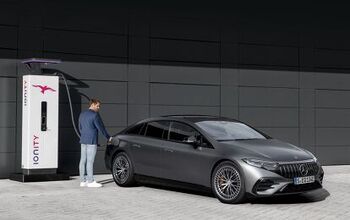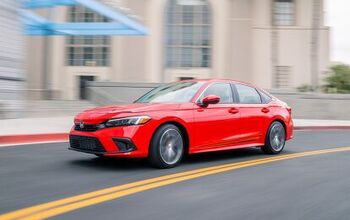Passing Gas: Some Automakers and Countries Commit to Ending Fossil Fuel Vehicles by 2024

You’ll notice an intentional and obvious use of the word ‘some’ in that headline. At the COP26 global climate summit currently being held in Glasgow, a handful of automakers and two dozen countries committed to an agreement calling for the end of fossil fuel vehicles by 2040 or earlier.
Headline signatories include the likes of Ford, GM Volvo, and Mercedes – along with reps from places such as Canada, the U.K., and Sweden. Not everyone chose to jump on board, however, including a couple of major world powers and two of the planet’s largest car companies.
Officially titled the Glasgow Declaration on Zero Emission Cars and Vans, the document pledges to rapidly accelerate the transition to zero-emission vehicles to achieve the goals of the Paris Agreement. For the avoidance of doubt within this context, the declaration states that such a machine is one that produces zero greenhouse gas emissions at the tailpipe.
Automakers whose names do not appear on the signed document include Toyota and VW, notable since they are two of the world’s biggest car companies. Also missing are Stellantis, Honda, and Hyundai among others. Specifically, the agreement states that automotive manufacturers will work towards reaching 100 percent zero-emission new car and van sales in leading markets by 2035 or earlier, supported by a business strategy in line with achieving that ambition while building customer demand.
Talking heads have referenced industry sources who’ve apparently said some automakers are leery of this particular COP26 pledge since it commits them to a costly shift in technology but lacks a similar commitment from governments. This, they say, fails to ensure the necessary charging and grid infrastructure would be built to support an onslaught of vehicles not powered by traditional fuel sources.
It’s important to know that a footnote on the document makes clear this declaration is “not legally binding and focused on a global level”, much like so-called Memorandums of Understanding or various and sundry other proclamations that don’t have legal teeth until working their way through legislation.
Interestingly, while the United States government as a whole is not on board with this particular declaration, key car-buying areas like California, Dallas, New York City, and Ann Arbor, Michigan did sign, as noted in the paper’s Cities, States & Regional Governments section. What’s the difference? Well, these regions have pledged to put efforts toward converting their fleets to zero-emission vehicles by 2035 at the latest, plus to put in place policies that will enable, accelerate, or otherwise incentivize the transition to zero-emission vehicles as soon as possible, to the extent possible given their jurisdictional powers.
This corner of COP26 wasn’t all about gubbmints and carmakers, with fleet companies and investors with significant shareholdings in automotive manufacturers also invited to sign up for these goals.
Speaking of, what’s your take on these types of agreements and events like this in general? You know where the comments section is; sound off below.
[image: Shutterstock]

Matthew buys, sells, fixes, & races cars. As a human index of auto & auction knowledge, he is fond of making money and offering loud opinions.
More by Matthew Guy
Latest Car Reviews
Read moreLatest Product Reviews
Read moreRecent Comments
- ToolGuy TG likes price reductions.
- ToolGuy I could go for a Mustang with a Subaru powertrain. (Maybe some additional ground clearance.)
- ToolGuy Does Tim Healey care about TTAC? 😉
- ToolGuy I am slashing my food budget by 1%.
- ToolGuy TG grows skeptical about his government protecting him from bad decisions.


































Comments
Join the conversation
The rush to EVs is dumb . It isn’t proven there will be a net global environmental benefit . The accelerated interest is about $ , period.
I did not notice mentioning of 2024 in the article. Am I missing something?